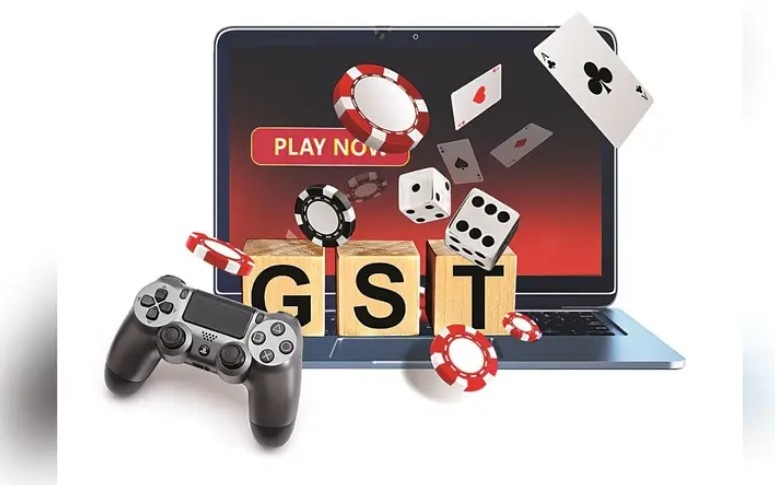India’s online gaming industry experienced a major transformation when the GST Council implemented a uniform 28% tax rate on all online gaming activities from October 1, 2023.
This decision eliminated the previous distinction between skill-based and chance-based games, bringing both under the highest GST slab.
The new tax framework applies to the full face value of bets or entry fees, which represents a shift from the earlier system, where only platform fees were taxed.
In this guide, we have explained everything you need to know about GST on online gaming, from compliance requirements to its impact on players and companies. These details will help you understand the new tax rules properly.
Online Gaming Tax In India: Things You Should Know
The Indian government has implemented a thorough GST framework for online gaming that treats all gaming activities uniformly under the highest tax bracket.
| Aspect | Details |
|---|---|
| GST Rate | 28% (highest slab) |
| Applicable On | Full face value of bets/entry fees |
| Effective From | October 1, 2023 |
| Game Types Covered | Skill-based & chance-based games |
| Tax Point | At the time of deposit/bet placement |
| Compliance | Monthly GST returns are mandatory |
How GST Applies to Different Types of Online Games?
GST on online games ranges from 18% to 28%, based on the type of game you play. The following GST rates apply to online gaming and casino earnings:

- For games of skill like esports, puzzles, and some card games, 18% GST is charged only on the platform’s service fee or gross gaming revenue (total stake minus winnings), under HSN code 998439.
- For games of chance such as casino gambling, 28% GST is charged on the total bet amount, under HSN code 999692.
- Following the 50th GST Council meeting on July 11, 2023, it was decided that a 28% GST will be applied to the full face value of online gaming, casinos, and horse racing.
- This change is pending legal amendment. A similar 28% GST applies to online lotteries too.
Compliance Requirements For Gaming Companies
Online gaming companies are required to comply with strict GST regulations. They need to register for GST if their earnings cross the limit set by law.

These companies must file GST returns every month (not quarterly like other businesses).
They also have to keep full records of all money-related activities, such as player deposits, withdrawals, and prize payouts.
Gaming companies also face limits on tax benefits. Most cannot claim Input Tax Credit (ITC) because of how real-money gaming is treated under GST rules.
Additionally, gaming platforms must establish systems to automatically collect GST from players when they deposit funds or place bets.
How to Calculate GST on Online Gaming and Casinos?
Calculating GST on online gaming and casinos depends on the type of game and the applicable tax rules.
An online gaming platform makes money in two ways:
1. Platform Fee or Entry Fee: This is a service charge (usually around 10-20%) taken by the platform for organizing the game.
It helps cover operational costs, technology infrastructure, and ensures a smooth user experience during gameplay.
2. Prize Pool or Pot Money: The platform deducts a 10–20% service charge, while the remaining 80–90% is added to the prize pool for winners.
The way GST is calculated depends on whether it is a game of skill or a game of chance. Here are examples for both cases:
Example 1 – Game of Skill (like Fantasy Sports or Rummy):
- 10 players each stake ₹500.
- Total pot amount = ₹500 × 10 = ₹5,000.
- The platform charges a 10% platform fee.
Platform Fee:
10% of ₹5,000 = ₹500.
GST Calculation:
18% GST on ₹500: ₹500 × 18% = ₹90.
Result:
GST payable = ₹90 (only on the platform fee).
Example 2 – Game of Chance (like Casino Games or Lottery):
Total bet amount = ₹5,000.
GST Calculation:
28% GST on ₹5,000: ₹5,000 × 28% = ₹1,400.
Result:
GST payable = ₹1,400 (on the full amount, not just the platform fee).
Also, before playing any online games and dealing with their taxes, ensure that betting is legal in your state. Indian Betting laws are not the same in each state.
GST on Online Gaming: Before The New GST Rule
Earlier, skill-based games were taxed at 18% on platform fees, while chance-based games attracted 28% on bet values.
| Aspect | Before October 2023 | After October 2023 |
|---|---|---|
| Skill Games | 18% on the platform fee | 28% on full bet value |
| Chance Games | 28% on bet value | 28% on full bet value |
| Tax Base | Platform commission/GGR | Full face value |
| Classification | Separate categories | Uniform treatment |
The old system made it confusing to decide if a game was based on skill or chance.

For example, if a player paid ₹100 and the platform charged a ₹20 fee, GST would be 18% of ₹20 = ₹3.6.
But if the same player joined a casino-style game, the full ₹100 would be taxed at 28% = ₹28.
That’s why it was important to know if a game was skill-based or chance-based. But since some games had both, it often caused confusion and disputes.
Impact Of New GST Rule On Online Gamers
The higher tax rate significantly increases the cost of participating in online gaming activities for players across all categories.

- Higher Entry Costs: Players now pay higher entry amounts since GST is included in their deposits, rather than being absorbed by the platform.
- Reduced Prize Pools: The total prize pool is reduced because GST is deducted from the total bet amount before the winnings are distributed to players.
- Lower Winnings on Withdrawal: Effective winnings are now lower, as higher taxes reduce the final payout during withdrawals.
- Fewer Promotions & Bonuses: Many gaming platforms have reduced their promotional offers and bonuses to manage the increased tax burden.
- Shift to Offshore Platforms: Some players are turning to offshore gaming sites to avoid the high tax rates in India.
Online Gaming Taxes in India vs Other Countries
India ranks among the highest-taxed jurisdictions globally for online gaming, with its 28% rate on full bet value significantly exceeding international standards.
| Country | Tax Rate | Tax Base | Who Pays |
|---|---|---|---|
| India | 28% | Full bet value | Platform (collected from players) |
| UK | 21% | Gross Gaming Revenue | Operators |
| Germany | 5.3% | Gross stakes | Operators |
| Singapore | 5-15% | Gross Gaming Revenue | Operators |
| Australia | 8-15% | Net wagering revenue | Operators |
| Malta | 0.5-5% | Gross Gaming Revenue | Operators |
Most countries tax online games based on the profit made by the company, not on the total money deposited by players.
This approach recognizes that the actual service provided is the platform facilitation, not the entire prize pool, which makes India’s current system more burdensome for both players and operators
Related Reads:
Conclusion: Online Gaming in India Taxes 28% GST
The 28% GST on online gaming is a big change in India’s tax rules, meant to increase revenue and help control gaming addiction.
However, the industry now faces higher operational costs and continues to push for a gross gaming revenue-based tax model, in line with global standards.
With ongoing legal cases and possible policy shifts, both players and gaming companies must closely follow compliance rules and future tax updates to adapt in this fast-changing market.
FAQs
GST is applied at deposit or bet time, even if the player doesn’t win.
International Gaming Apps charge GST in India. If they serve Indian users, they must comply with Indian GST rules.
GST refunds are not available to players as they’re not registered businesses.
GST only applies when real money is involved, not on free games.
GST applies to Winnings transferred because GST is already collected on the deposited amount.
- How to Withdraw Winnings from Betting Sites Using UPI - August 20, 2025
- Is Online Gaming Addictive? (Risks & Precautions) - August 19, 2025
- Google Pay for Betting in India – How To Use It? - August 18, 2025